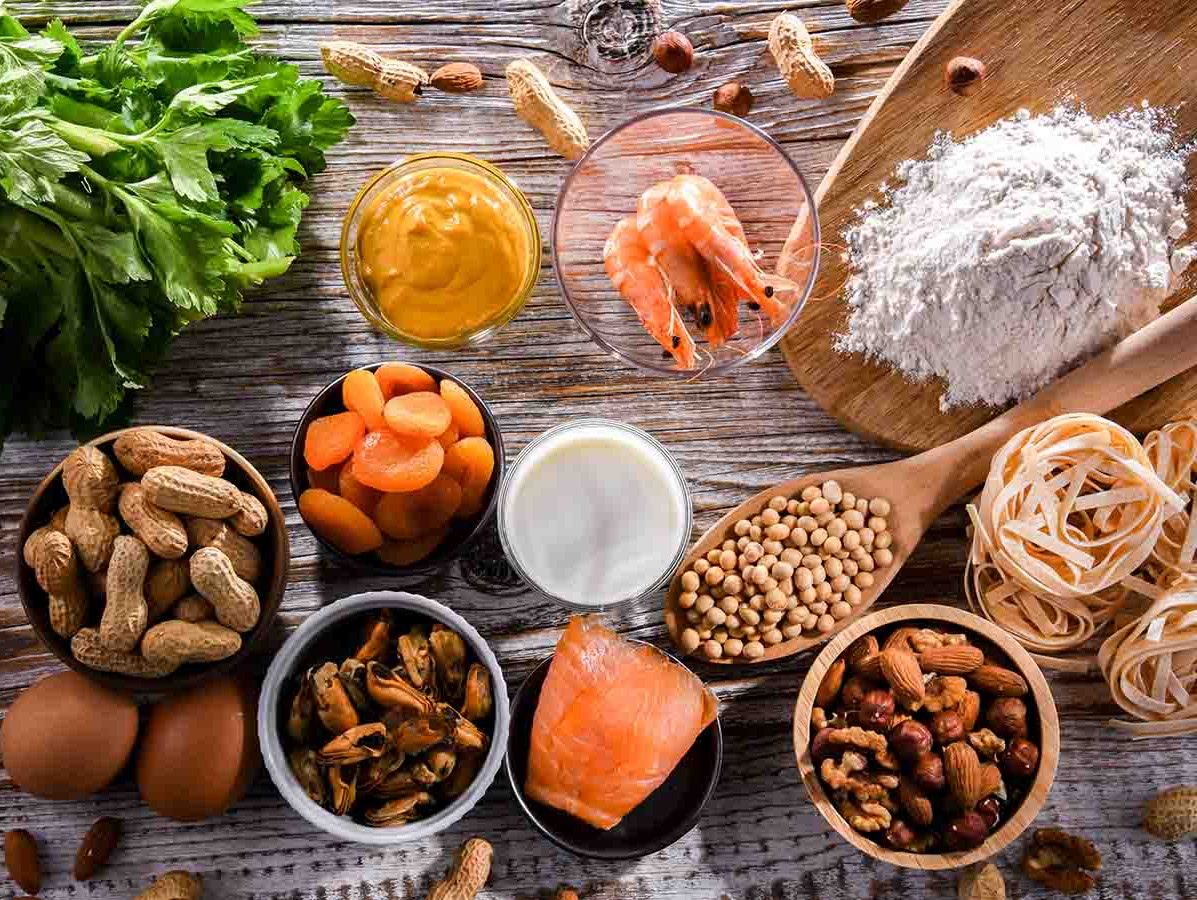
From January 1, 2024, the Netherlands will have a new allergen policy. Exposure standards have been set, and the rules for alerting on the label about the possible (unintended) presence of substances that can cause allergies (allergens) have been tightened. This will make the presence or absence of a warning for the allergic consumer significantly more reliable.
The new policy is based on the advice of the WHO (World Health Organization) and the FAO (Food and Agriculture Organization of the United Nations). Research by TNO and UMC Utrecht into the sensitivity of individuals with a food allergy and their eating habits formed the basis for these scientific recommendations.
Allergens in food pose a danger to people with a food allergy. Approximately 3% of the population has a food allergy; in the Netherlands, that's over half a million people. Allergens present in ingredients used in food products must be clearly mentioned on the label by the manufacturer.
By January 1, 2026, all producers of prepackaged foods must comply with the new rules.
Allergens can also unintentionally end up in food. Producers and suppliers of food often warn about this possible unintended presence of allergens (for example: ‘may contain traces of ...’ or ‘made in a factory that also processes ...’). There were no rules for when to warn or not warn about this risk. The result was that products without a warning often contained allergens, and that labels of products without allergens often had a warning anyway.
Prof. Geert Houben, Chief Scientist of Food Allergy and Immunotoxicology at TNO and Professor of Food-Related Risk Factors for Allergies and Inflammatory Diseases at UMC Utrecht and Utrecht University: “Because the food-allergic consumer could not draw any conclusion from the presence or absence of a warning, a potentially life-threatening situation could arise. With the new rules, that's over. The new policy's principle is that warnings for the possible and unintended presence of allergens may only be used, and must be used, if there is indeed a risk to people with a food allergy."

Geert Houben
For over 10 years, TNO and UMC Utrecht have been working together to achieve reliable labeling of allergens on labels to reduce the risks for people with a food allergy. Research by these organizations and the Food Allergy Research and Resource Program (FARRP) of the University of Nebraska (USA) and their developed databases, data analysis methods, and analysis results made it possible to calculate safe standards for food allergens. This paved the way for establishing international standards and procedures for warning about the intended and possible unintended presence of allergens in food.
Central to the research is an international database managed by TNO with more than 3,500 thresholds of sensitivity of individual food-allergic patients. This research and the TNO database were considered by the WHO/FAO expert committee as 'the most comprehensive and best-described source available, both in terms of content and composition, with supporting publications reviewed by international experts'. The committee thus based the establishment of the safe standards (Reference Dosages) on analyses of the TNO database. Based on these standards, producers will know exactly when to warn or not warn on a label about the possible unintended presence of an allergen, and people with a food allergy can confidently rely on the information on a label.
Geert Houben: "There has been talk for years about establishing these standards. We are therefore very pleased that this new policy, which puts the Netherlands ahead of Europe and the rest of the world, is being introduced. Research by TNO and UMC Utrecht showed that annually 4% of people with food allergies end up in emergency care due to an allergic reaction. Translated to the number of people with food allergies in the Netherlands: more than one every half hour! This number will definitely go down with these new rules for allergy warnings on food labels. This is truly a milestone!”
Source: Vakblad Voedingsindustrie 2024